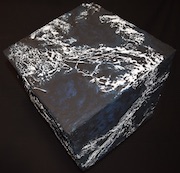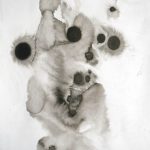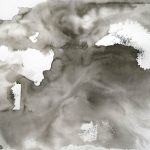RR: If my memory serves me correctly, this conversation occurred by email with a student named Roman (Kosax?) who was working on a thesis about creativity and dreaming. Some of you might find this interesting.
1) How much have lucid dreams influenced your music career?
RR) I can’t give a quantitative answer, but certainly my interest in lucid dreams fits with my lifetime fascination with our ability to build internal worlds. I first read about lucid dreaming around 1980, in an Omni Magazine feature about Stephen LaBerge. I noticed that Stephen was at the Stanford Sleep Center, and that became one of the reasons I wanted to go to Stanford University. I was interested in many of the ways that our conscious and unconscious mind collaborate in the creative process. It was a good match of interests, and my music career grew alongside the psychology studies, somewhat separate, but also informed by the insights gained from this research.
2) How often do you experience musical lucid dreams?
RR) Less than once a year. They are rare and special occurrences. Some of them have been very significant, and they deeply inform the direction of my musical path. I must explain, though, that most of my lucid dreams are not about music, but they are often powerful and beautiful. They influence my music through this power and beauty, not by directly showing me anything about my music.
3) Does experience in a dreamworld give you inspiration or do you find/create some ideas during dream?
RR) Some lucid dreams have inspired me deeply, and I heard music that I wanted to re-create within those dreams, giving birth to new compositions. Two strong examples come from the time when I was most active in this research, from 1985-1992.
First is the piece “The Walled Garden” on Numena. I was dreaming that I was sitting in a circle of people talking about the paintings of Mati Klarwein (which I had recently seen in an exhibit). One painting came up that reminded me of the coastal mountains near my home. Suddenly I felt a push from behind, as I became aware I was dreaming, and the push sent me flying into the painting over my coastal mountains. I heard music that came from all around me as I flew with my arms spread wide over the mountains, seeing chaparral and dry steep hillsides, ocean and coast, filled with a deep sense of beauty. The music made me want to cry. I woke up from this lucid dream with a deep sense of yearning and purpose, and the music echoed in my mind. I tried to emulate that sound in “The Walled Garden.” It took many experiments with electronic processing of my flutes to discover the sound from my dreams.
Second example: a similar experience created the piece “Air” from the album Gaudí. I became aware that I was dreaming as I was walking in air, above a city that I thought was Barcelona. In actuality it looked more like New York, with tall skyscrapers reaching up to me, and I felt like I was swimming at the top of a lake, with trees drowned under the lake surface reaching up towards me, like ghosts. The city lights in fog through night air made the buildings feel like seaweed, reaching up to me. It was frightening at first, a sense of vertigo and fear of deep water combined, but when I realized it was a dream, I knew I was floating safely above the city, and I could hear the hum of all the people below, the musical resonance of life shimmering below my feet. I felt a sad kindness towards humanity, a sympathy and empathy. I tried to find that sound in the piece “Air” – which also uses flute, ironically – a feeling that came directly from the music in a dream.
Most dreams come from places that blend recent elements of mental focus (or recent mental periphery) with early childhood memories or emotionally evocative settings. Typical dreams (even lucid dreams) do not help write a new composition, but they can offer inspiration. If a certain dream becomes an influence it’s because it has an ecstatic emotional-spiritual component that extends beyond the mere content of the dream. Usually the dream decides the content, and some of those dreams have energetic qualities that resonate outside of the dream-content alone.
4) Can you describe an experience of having a concert in front of an audience or just performing music while dreaming?
RR) None of my powerful or influential musical dreams have involved performances. Usually the best dreams have an ecstatic emotional element which also has a “soundtrack” – and the soundtrack to the dream is the music that gives me creative ideas. I hate to admit that most of my dreams that involve live performance have the cliché stressful problems of embarrassment, or instruments that don’t make sound, cables disconnected, being trapped backstage, forgetting to practice, or playing for an empty hall. The actual “performance” dreams are usually complicated by performance anxiety, sorry to say.
5) Please describe your experience of playing flute or other wind instruments, and compare it with playing in a dream.
RR) I almost never play an instrument in my dreams, I usually hear music coming from “inside me” and not related to any instrument. Then, when I wake up and I remember the sounds I heard in the dream, I try to think about how to create the abstract sensation that came from the dream-music. I will then search for an instrument that might come close to the sound inside my head. Often I choose a flute for this purpose, because I can play flute with a sort of breathy sound that softens the note, creates more of a texture instead of the pure note that classical flute players seek. The sound in my dreams is disconnected from a source, disconnected from performance, it is just pure sound. Maybe this is why my music is a bit abstract.
I try to get acoustic performances to sound like dream music, by manipulating the acoustic properties of the instrument, layering multiple performances into a cloud of sound, looping it until it becomes a blur, or slowing it down so it becomes a drone. The performance itself is less important than the way I manipulate the performance to make it sound like dream music. Having said that, I confess that my immediate experience of playing flute (when I’m doing it correctly) is one of a direct connection between emotion and sound, with the intermediary elements of nerves, muscles, fingers and breath somewhat hidden. When it works correctly, my emotion streams directly to sound by way of fingers and breath, and I am not thinking about the connection at all, it just happens.
6) And finally: would you be so kind to arrange a message about value of lucid dreams for musicians?
RR) Lucid dreams offer a means for people to practice skills or experiment with social interactions, in ways that would be impossible in the real world. The human brain is an organ that constantly creates models of reality, and in sleep it practices and tests these models of the world. Lucid dreaming is a beautiful mode of world-building that connects unconscious improvisation with conscious intention. For people with creative expertise, this means that they can test the boundaries of their skills without fear of judgement. More importantly, the often ecstatic component of mood that goes along with lucid dreaming can feed our most essential creative fire, the desire to communicate beauty and the human experience. For any artist – musician, painter, writer, dancer, sculptor or whatever – this connection to the creative core can ignite a flame that helps one’s art burn brighter.
All the best – Robert Rich






You must be logged in to post a comment.